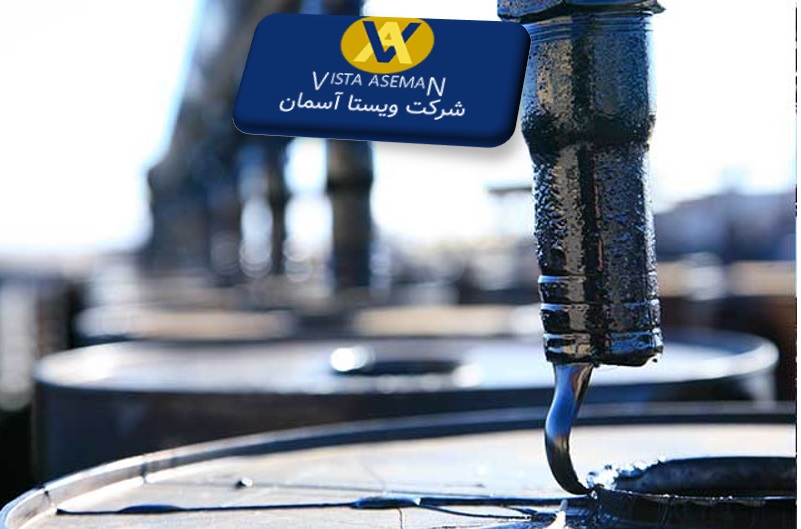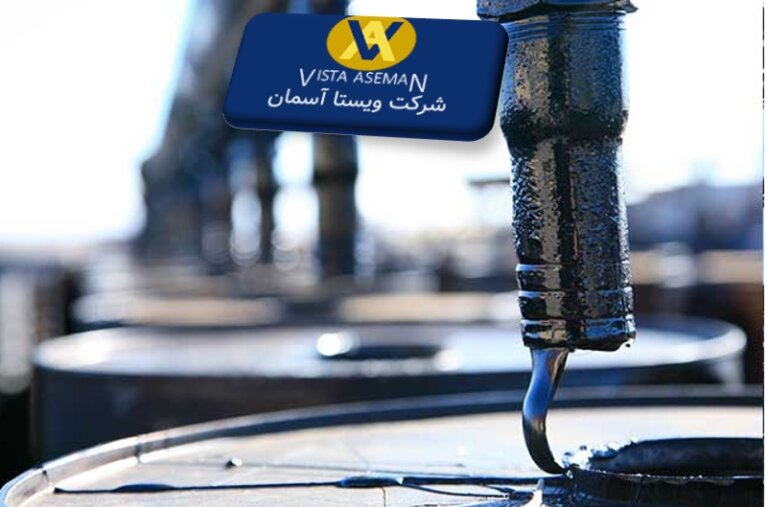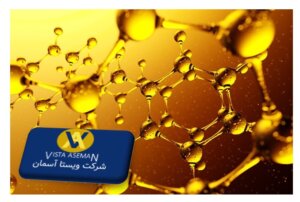Bitumen 100/120 is a widely used paving-grade bitumen that offers excellent durability and flexibility for various road construction projects. This semi-hard penetration grade bitumen is known for its exceptional performance in both hot and cold weather conditions. In this comprehensive guide, we will explore the specifications, applications, and benefits of Bitumen 100/120.

Table of Contents
Introduction
What is Bitumen 100/120?
Definition and Manufacturing Process
Specifications of Bitumen 100/120
Penetration Test and Hardness
Softening Point
Ductility
Other Properties
Applications of Bitumen 100/120
Road Construction and Repair
Asphalt Pavement Production
Roof Insulation
Membrane Sheet Manufacturing
Advantages of Bitumen 100/120
Durability
Flexibility
Cost-effectiveness
Comparison with Other Bitumen Penetration Grades
Bitumen 30/40
Bitumen 60/70
Bitumen 80/100
Bitumen 120/150
Storage and Handling of Bitumen 100/120
Packaging Options
Safety Measures
Quality Control and Testing
Laboratory Services
Material Safety Data Sheet (MSDS)
Environmental Impact and Sustainability
Recycling of Bitumen
Green Initiatives in Bitumen Production
Global Suppliers of Bitumen 100/120
Leading Companies in the Industry
Pricing and Market Trends
Conclusion
1. Introduction
Bitumen is a viscous, black, and sticky substance that is derived from crude oil during the refining process. It is a vital component in road construction, providing durability and strength to the pavement. Bitumen penetration grades are categorized based on their hardness and are commonly used for various applications in the construction industry. In this article, we will dive into the specifics of Bitumen 100/120, one of the popular penetration grades.
2. What is Bitumen 100/120?
Bitumen 100/120, also known as penetration-grade bitumen, is a semi-hard bitumen that falls within a specific range of hardness. It is produced through the refining of crude oil, where the bitumen is extracted and processed to obtain the desired properties. The manufacturing process involves the oxidation of vacuum bottom residue in vacuum oil refineries. This process results in the production of bitumen with specific characteristics suitable for road construction and other applications.
3. Specifications of Bitumen 100/120
To ensure the quality and consistency of bitumen 100/120, it is essential to adhere to specific specifications. These specifications determine the penetration, softening point, ductility, and other properties of the bitumen. Let’s take a closer look at the key specifications of bitumen 100/120.
Penetration Test and Hardness
The penetration test is a crucial indicator of the hardness of bitumen. It is conducted using a penetrometer, which measures the depth to which a standard needle penetrates the bitumen sample under specific conditions. Bitumen 100/120 has a penetration value between 100 and 120, indicating its semi-hard nature.
Softening Point
The softening point of bitumen 100/120 ranges between 42°C and 49°C. It represents the temperature at which the bitumen softens and loses its original shape under the influence of heat.
Ductility
Ductility refers to the ability of bitumen to stretch without breaking or cracking. Bitumen 100/120 has a minimum ductility of 100 at 25°C, ensuring its suitability for various construction applications.
Other Properties
Bitumen 100/120 also undergoes testing for properties such as loss on heating, flashpoint, solubility in CS2, drop in penetration after heating, and density. These properties determine the performance and stability of the bitumen in different weather conditions.
4. Applications of Bitumen 100/120
Bitumen 100/120 finds extensive use in various applications within the construction industry. Its versatility and performance make it the preferred choice for the following applications:
Road Construction and Repair
Bitumen 100/-120 is widely used in road construction and repair projects. It serves as a binder for asphalt mixtures, providing strength and durability to the pavement. The excellent adhesion properties of bitumen 100-120 help in creating a stable and long-lasting road surface.
Asphalt Pavement Production
Asphalt pavements, commonly known as blacktops, consist of a mixture of bitumen and aggregates. Bitumen 100/120 acts as a crucial binding agent in the production of asphalt pavements. The specific penetration grade of bitumen ensures the desired performance and longevity of the pavement.
Roof Insulation
Bitumen 100/120 is also utilized in the production of roof insulation materials. Its waterproofing properties and resistance to extreme weather conditions make it an ideal choice for roofs in residential and commercial buildings.
Membrane Sheet Manufacturing
In the construction industry, bitumen 100/120 is used in the manufacturing of membrane sheets. These sheets are widely used for waterproofing applications in basements, tunnels, and other structures.
5. Advantages of Bitumen 100-120
Bitumen 100/120 offers several advantages, making it a preferred choice in the construction industry. Let’s explore some of these advantages:
Durability
Bitumen 100/120 exhibits excellent durability, allowing it to withstand heavy traffic loads, extreme weather conditions, and aging. Its resistance to deformation and cracking ensures the longevity of the pavement.
Flexibility
The semi-hard nature of bitumen 100/120 provides the necessary flexibility to accommodate movements in the pavement caused by temperature variations and traffic loads. This flexibility helps prevent cracks and enhances the overall performance of the road.
Cost-effectiveness
Bitumen 100/120 offers a cost-effective solution for road construction and repair projects. Its availability and relatively lower production costs make it an economical option for infrastructure development.
6. Comparison with Other Bitumen Penetration Grades
Bitumen 100/120 falls within a range of penetration grades, each with its specific characteristics and applications. Let’s compare bitumen 100-120 with other commonly used penetration grades:
Bitumen 30/40
Bitumen 30/40 is a softer grade with a lower penetration value. It is commonly used in cold weather conditions and for surface treatments.
Bitumen 60/70
Bitumen 60/70 is a versatile grade that balances hardness and flexibility. It is suitable for various road construction applications and asphalt mixtures.
Bitumen 80/100
Bitumen 80/100 is a harder grade with a higher penetration value. It is often used in regions with warm weather conditions and heavy traffic loads.
Bitumen 120/150
Bitumen 120/150 is a harder grade with a higher viscosity. It is commonly used in surface dressing and pavement construction.
7. Storage and Handling of Bitumen 100/120
Proper storage and handling of bitumen 100120 are crucial to maintain its quality and ensure safe working conditions. Here are some important considerations:
Packaging Options
Bitumen 100/120 is typically available in various packaging options, including drums, bags, and bulk shipments. Depending on the project requirements, suitable packaging and transportation methods should be chosen to prevent contamination and maintain the integrity of the bitumen.
Safety Measures
Working with bitumen requires adherence to strict safety measures. Protective clothing, gloves, and eyewear should be worn when handling bitumen. Adequate ventilation is essential to prevent exposure to fumes. Proper storage facilities should be in place to prevent accidents and minimize the risk of fire.
8. Quality Control and Testing
To ensure the quality and performance of bitumen 100/120, regular testing and quality control measures are essential. Laboratory services play a crucial role in conducting various tests to verify compliance with the specified standards. Material Safety Data Sheets (MSDS) provide important information about the properties and handling of bitumen 100/120.
9. Environmental Impact and Sustainability
As sustainability becomes a growing concern, the bitumen industry is embracing initiatives to reduce its environmental impact. Recycling of bitumen plays a significant role in reducing waste and conserving natural resources. Additionally, advancements in production techniques are focused on minimizing energy consumption and emissions.
10. Global Suppliers of Bitumen 100/120
Several global suppliers offer bitumen 100/120, catering to the growing demand in the construction industry. These suppliers provide competitive pricing, quality products, and efficient logistics to meet the requirements of various projects. Market trends and pricing fluctuations should be considered when procuring bitumen 100/120.
11. Conclusion
Bitumen 100/120 is a versatile and durable paving grade bitumen that finds applications in road construction, asphalt pavement production, roof insulation, and membrane sheet manufacturing. Its specific penetration grade ensures optimal performance in various weather conditions. The advantages of bitumen 100/120, such as durability, flexibility, and cost-effectiveness, make it a preferred choice for infrastructure projects worldwide. By adhering to proper storage, handling, and quality control measures, the benefits of bitumen 100/120 can be fully realized while minimizing environmental impact. As the demand for bitumen continues to grow, global suppliers play a crucial role in providing quality products and ensuring a sustainable future for the construction industry.




